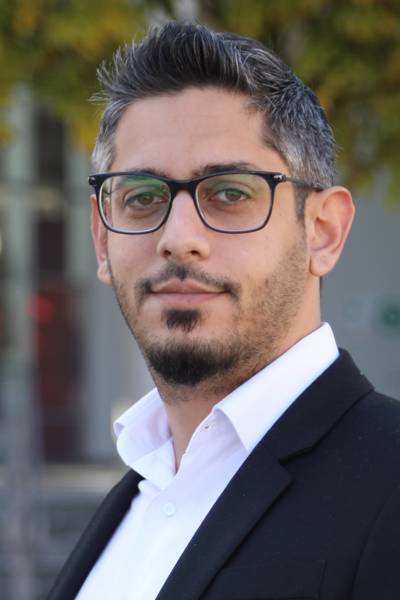Zenonas Tziarras: All news
17 news items
New podcast series: FAIR: Ethics in Peace Negotiations
A new podcast series on ethics in peace negotiations is now available on Spotify.
New Case Brief: Ethical Issues and Controversies in the Astana Process: Questioning Representation and Ownership
This new FAIR case brief by Zenonas Tziarras focuses on how the Astana process became central to the peace efforts regarding the Syria conflict after 2017, but it has been heavily influenced by the interests and positions of its three sponsors or guarantor powers: Russia, Turkey, and Iran.
New book: The Foreign Policy of the Republic of Cyprus Local, Regional and International Dimensions
Edited by Zenonas Tziarras
RedLines Project Kick-Off Meeting
The Red Lines and Grey Zones project has been officially launched with a kick-off meeting on the 1st of March.
Turkish Foreign Policy: The Lausanne Syndrome in the Eastern Mediterranean and Middle East
New book by Zenonas Tziarras
Podcast Episode on Natural Resources and Struggles for Power in the Eastern Mediterranean
Recent discovery of hydrocarbon has exacerbated existing geopolitical tensions in the Eastern Mediterranean.
Workshop on Ethical Issues in Peace Negotiations and Mediation
On 9-10 September 2021, around 20 researchers met for a hybrid online-offline workshop to share their research on specific cases of ethical issues in peace negotiations and mediation.
New Project on Ethics of Humanitarian Negotiation
The project "Red Lines and Grey Zones: Exploring the Ethics of Humanitarian Negotiation" has received funding from the Research Council of Norway.
Zenonas Tziarras in ISPI Panel Discussion 'The Scramble for the Eastern Mediterranean'
Organised in the framework of Rome MED Mediterranean Dialogues, 29 June 2021
New Podcast with Zenonas Tziarras
In this episode of The Conversation podcast, Dr.
Zenonas Tziarras talks about the patterns of cooperation and competition in the Eastern Mediterranean
In this talk for Deep Dive Politics Zenonas covers the international systemic drivers and individual state interests that led to the emergence of the new security architecture in the Eastern Mediterranean.
Zenonas Tziarras on Euronews
Zenonas Tziarras comments on the new round of talks on the Cyprus Problem that are taking place in Geneva.
Positive Impact of Eastern Med Hydrocarbons Hinges on Overcoming Differences
In a recent article entitled "Energy and Sovereignty in the new Geopolitics of the Eastern Mediterranean" published in the Oxford Energy Forum, PRIO Cyprus Centre researcher Zenonas Tziarras asks how much of the recent crises can really be attributed to hydrocarbons, given other underlying issues and a history of regional tensions.
What Erdogan Really Wants in the Eastern Mediterranean
"Turkey’s adventures abroad are about more than hydrocarbons.
What Peace for Syria? PRIO Cyprus Centre & PRIO Middle East Centre Report
Since the outbreak of the conflict almost 10 years ago, Syria has become a country of limited sovereignty.
Geopolitical Antagonisms Usher Libya Into a New Conflict Phase
In the PRIO Cyprus Centre (PCC) Policy Brief 'Turning the Tide in Libya: Rival Administrations in a New Round of Conflict' – co-published with the PRIO Middle East Centre – Zenonas Tziarras and Ioannis Sotirios Ioannou analyze the geopolitical dynamics in Libya following Turkey's military intervention in December 2019.
Project on the Ethics of Peace Negotiations and Mediation Receives Funding
What makes peace negotiations fair?This is the over-arching question asked in the project On Fair Terms: The Ethics of Peace Negotiations and Mediation, which has now received three years of NORGLOBAL funding from the Research Council of Norway.






